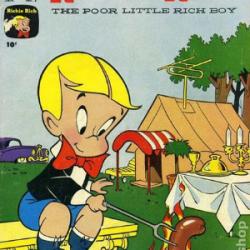Note: This article is part of a special Patheos Symposium, Passing on the Faith: Teaching the Next Generation. Read more perspectives here.
"Rabbi, how do I make sure that my children believe in God?" "How do we make sure that our kids will carry on our traditions?" "How can we assure a successful future for our community?"
If these are not the most common questions that I hear in the contemporary Jewish community, they are certainly near the top of the list. And people want answers! In fact, people often want the answer. They want to know the magic bullet response, and of course there isn't one.
Human beings are simply too complex, and the journey of one's soul to infinite, to ever be reduced to a finite response. There are, however, approaches that can help us respond more productively to these often asked questions.
When it comes to believing in God, I am reminded of the words of the famous singer and outreach worker, Rabbi Shlomo Carlebach, who said that he too was always asked by parents about how make sure that their kids believed in God. "Better," the rabbi observed, "that you should make sure they know that God believes in them."
Reb Shlomo, as he was known, stood in line with those Jewish sages who question whether or not one can even count the first of the Ten Commandments—"I am the Lord your God"—as a commandment. He appreciated that genuine faith can neither be assured nor commanded.
Genuine faith is something far more profound than verbal assent to an agreed upon dogma. It arises out of life experience, and among the most important of those experiences are those that help people—especially young ones—to know that they are loved, that their aspirations are sacred, and that they are believed in. In other words, faith in God is best thought of not as a goal, but as a by-product of loving and trusting experiences created by those who themselves already possess deep faith.
In terms of continuity of practice, the most natural thing in the world is to hope that those we love will do the things that we ourselves most love doing. In fact, it is difficult not to feel the sting of rejection when our kids don't follow in our footsteps. That said, we might do well to widen our definition of what it means to follow in our footsteps.
Don't get me wrong, I am quite traditional in my practice, and certainly hope that my children will be so as well. But I don't imagine that they must always look as I look on the outside in order to meaningfully carry on a 5,000-year-old tradition which has looked quite different at different times in its unfolding history.
In fact, when Deuteronomy 6:7 famously commands us to "teach them to our children," the definition of "them" is not entirely clear. As the verse continues, Moses says that it refers to the "instructions which I (he) teach you (the Israelites) this day." But what does that include?
The commandments found in the immediately following verses? Those which subsequent generations of rabbis understood to be implied by these verses—commandments including tefillin (phylacteries) and the mezuzah hung on doors of people's homes? The entire speech that is basically what makes up the Book of Deuteronomy? I think the answer is probably "yes."
What we are meant to teach our children is both the specific practices and an entire worldview or story. Sometimes the principles that animate the second express themselves in ways that differ from the practices of past generations.
While I am deeply in love with the practices I have received from those generations, and want my kids to feel the same way, I know that "The Tradition" is bigger than any one traditional understanding of how to practice, and appreciate that the next generation may carry on the former, faithfully and successfully, even when we may disagree about the latter.
Most powerfully, especially in our era of professionalization and the presumption that an expert can always be found to solve even the most vexing of challenges, is the notion expressed in the verse that parents are their kids' primary teachers, especially when it comes to faith. The Bible knew that farming out education was always a second-best response, not because expert input from masters was unimportant, but because the core of most people's spiritual education comes from those whom they most closely observe, i.e. their parents.
In fact, parents are usually great educators, even if they don't always like seeing their real teachings mirrored back. Parents who demand things of their kids, things that they themselves don't fully embrace, should not be surprised when their kids don't embrace those things either.
Our kids can tell the difference between what we say we love and what we really love, and they will follow the latter over the former every day of the week, including when it comes to observing whatever Sabbath we tell them to observe.
When our kids see us living and loving the traditions we claim, they will learn well the real and durable value of those traditions. That's what it means to be our kids' best teachers.
Ultimately, all evidence points to one very simple truth about the complex nature of spiritual education: we build the brightest future, not by worrying about the future, but by living our faith in the present. When we do that, and we do so with those we love, and do so with love, we make sure that the future of faith is bright even when we cannot know its full contours or details. In other words, having faith in the faith we follow, and in those we hope will follow us, is the surest way to build the future of faith.
7/31/2013 4:00:00 AM




